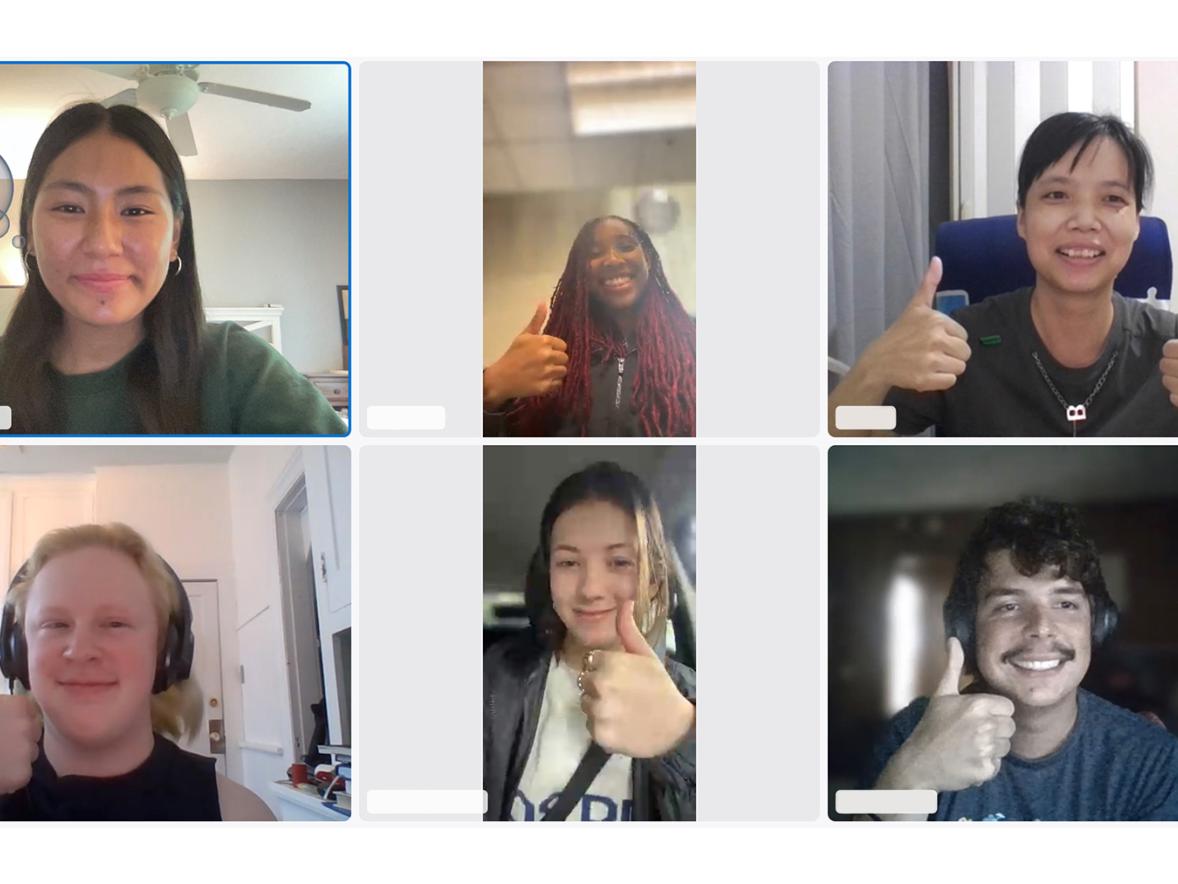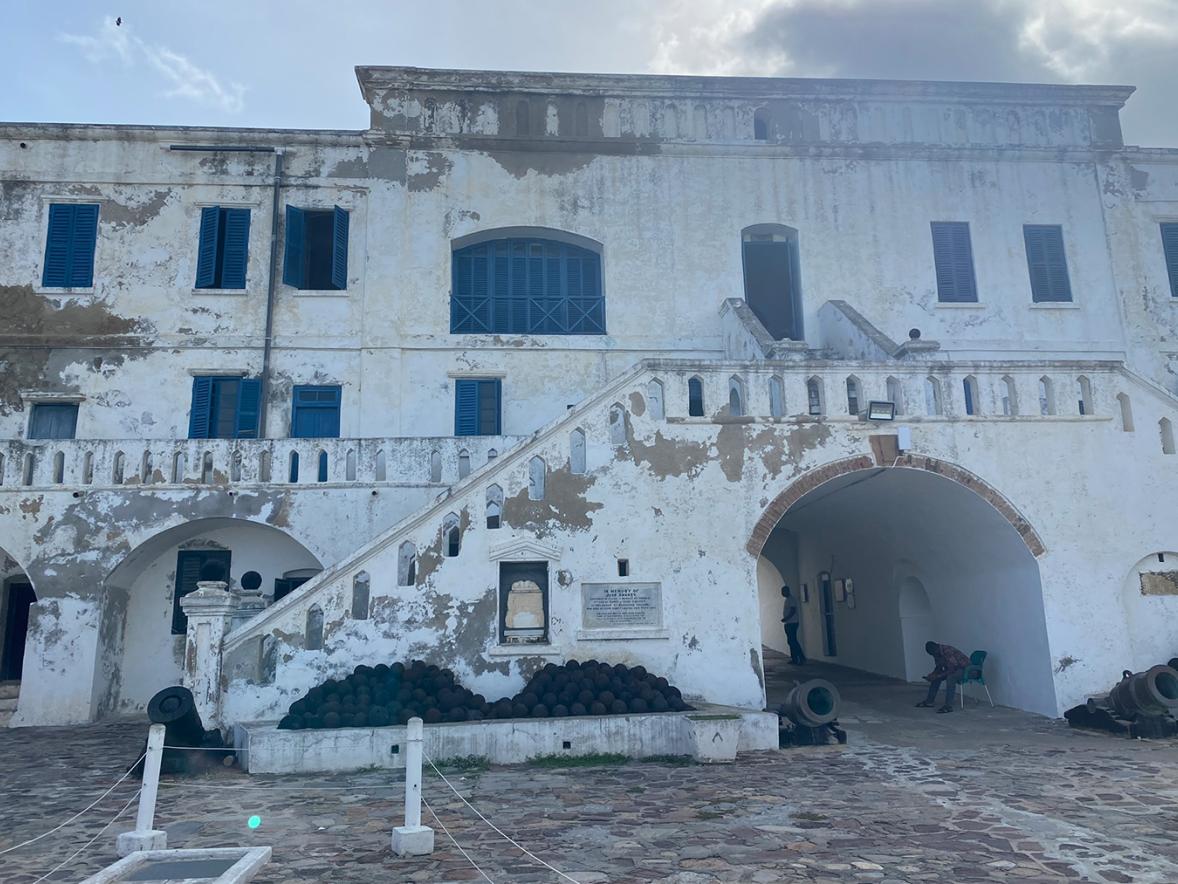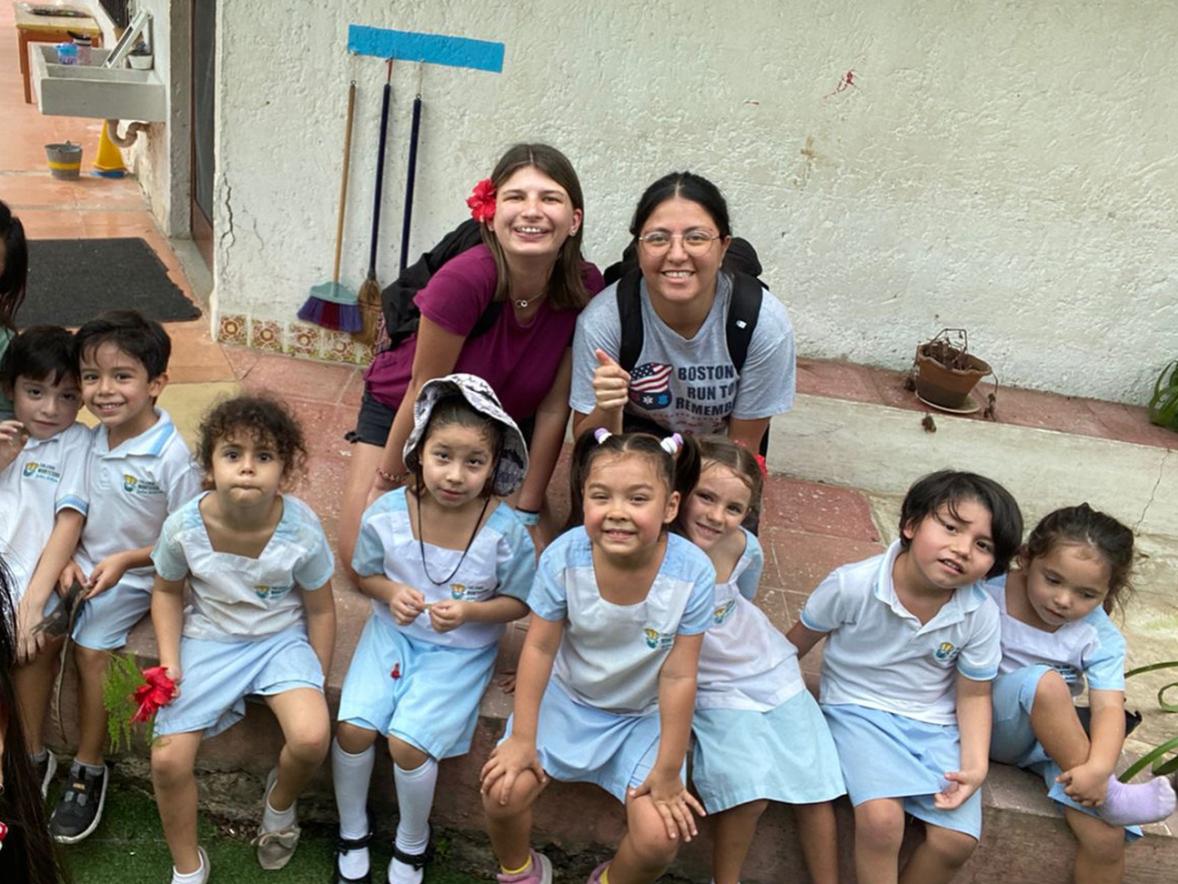Two classes, two weeks. Two groups of UW-Stout students dive into the cultures of Thailand and Cozumel, Mexico, working with children and learning the histories and social structures of people a world apart.
Fifteen students venture to Chiang Mai and Chiang Rai provinces in northern Thailand, visiting communities in the Hmong and Other Minorities in Thailand course with program leader, UW-Stout sociology Professor Georgios Loizides.
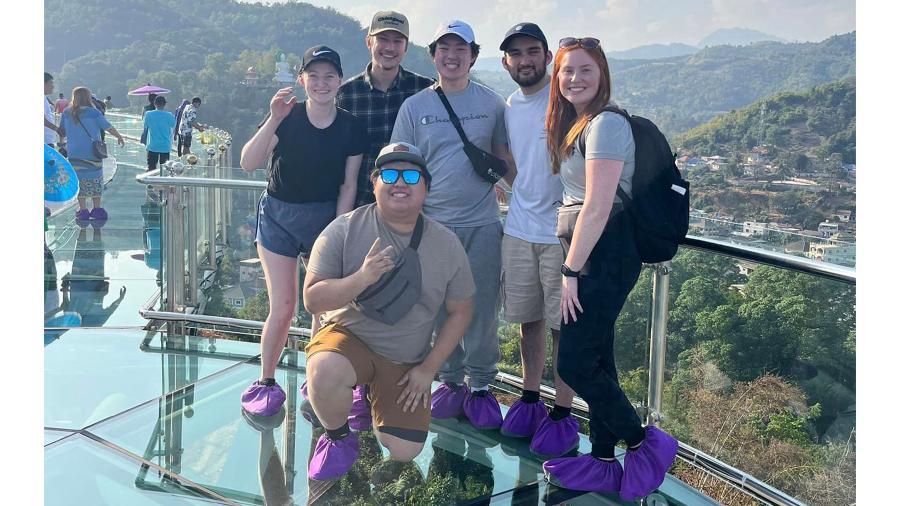
While experiencing Thai culture, they see how the work of nongovernmental organizations addresses social challenges, like poverty, the limited citizenship status of minorities, and the trafficking of women and children.
The program was developed as part of a faculty-led series of heritage-based programming, resulting from a World Learning and U.S. Department of State IDEAS Grant (Increase and Diversify Education Abroad for U.S. Students) awarded to UW-Stout.
Half a world away, on the island of Cozumel, 20 miles off the Yucatan Peninsula, 10 education students complete a teaching practicum in multiculturalism in local schools for children with disabilities and at an international Montessori school.
The Education in Cozumel course, which began in 2017, involves a collaboration between UW-Stout and the University of Quintana Roo. UW-Stout students connect with UQRoo students, take dance lessons, learn to speak Spanish and converse on educational experiences in the U.S. and Mexico.
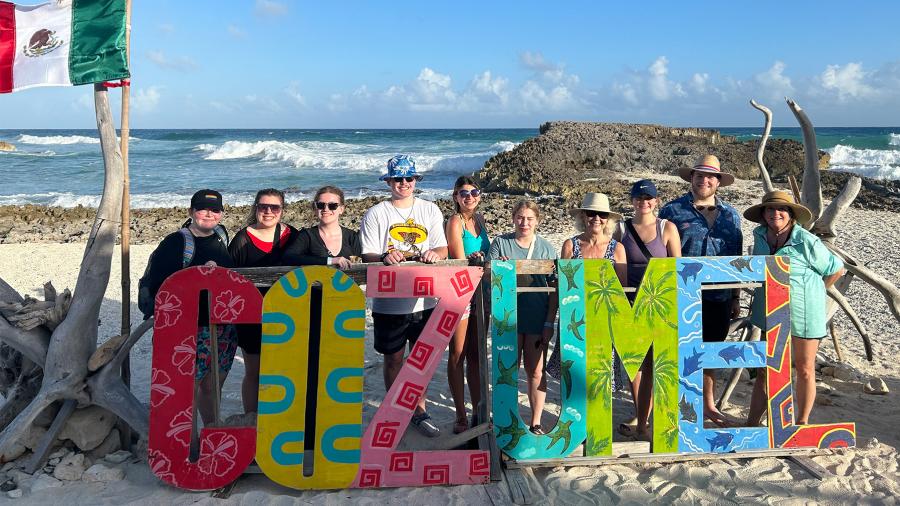
Led by UW-Stout professors Terry Kohlmeier and Mary Hopkins-Best, students develop diverse and meaningful learning experiences for children with or without disabilities. The students write lessons and implement them in a variety of classroom settings.
After class each day, they explore the island and learn about the Mexican and Mayan cultures and history of the people of Cozumel.
Study abroad opportunities are a part of Stout Core, foundational education classes at Wisconsin’s Polytechnic University. Through Stout Core’s areas of expertise, students gain global perspective, communication and critical thinking skills, ethical reasoning and more so they graduate ready to do more on day one.
The Cozumel and Thailand courses satisfy Stout Core Racial and Ethnic Studies requirements. They are open to students in all programs.
A trek through Thailand
Amelia Monroe, a supply chain management sophomore from Northfield, Minn., has wanted to travel to Thailand since she was a kid.
“Studying abroad was a leap of faith outside of my comfort zone and a leap I would take again. Strangers become close friends. The professors and staff truly made the experience one of a kind,” Monroe said.
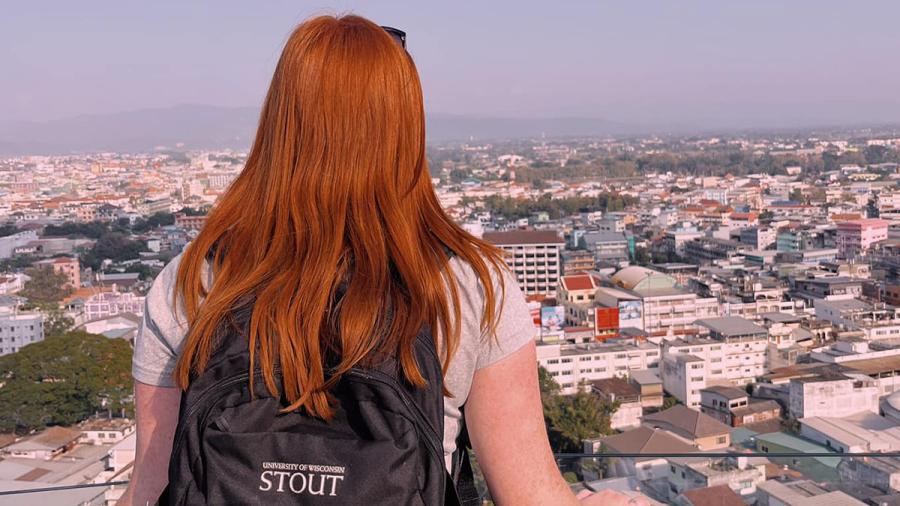
“Studying abroad gave me a broader understanding of life in general – the differences in culture and a small peek into the reality of Thai people. I think it is so easy to take life for granted here in the states, and going to a different country was a real reality check,” she added.
Donning purple shoe booties to protect the glass, the class strolls across the Mae Sai Skywalk, which offers a unique view of the borders of Thailand and Myanmar. The curved structure, spanning 150 meters, is located at the northernmost point of Thailand and is considered to be the longest skywalk in the country.
“I never thought I would be able to study abroad, and I think it really started to hit me here. I’m a Minnesota girl representing her college in Thailand. To say I wore my UW-Stout backpack around loud and proud was an understatement,” Monroe said.
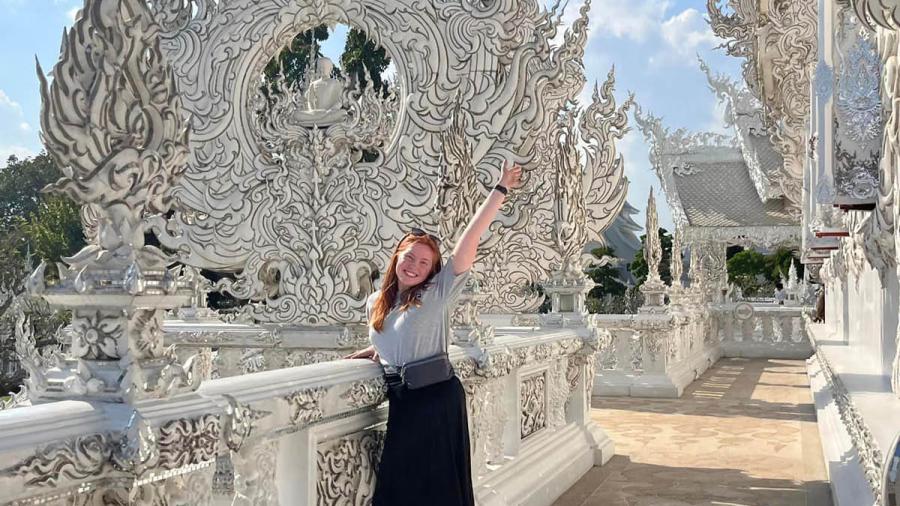
While in Mae Sai, they work at a development center with children ages 6 to 20, teaching them English. The children are at risk of parents with issues related to addiction, border trafficking, and sex and labor trafficking.
“The center works with them to bring them a better life. They believe that speaking English is the golden ticket for these kids,” Monroe said.
When they’re not studying, the class explores temples and Thai markets, takes a cooking class, samples street food and celebrates the Hmong New Year. They visit Wat Rong Khun, the White Temple, a Buddhist temple and one of the most recognizable temples in Chiang Rai Province.
They stand under the archway at the northernmost point of Thailand, in Mae Sai, and can see the military guard at the Myanmar border. At the confluence of the Mekong and Ruak rivers, they stand at the Golden Triangle, where the borders of Thailand, Myanmar and Laos meet.
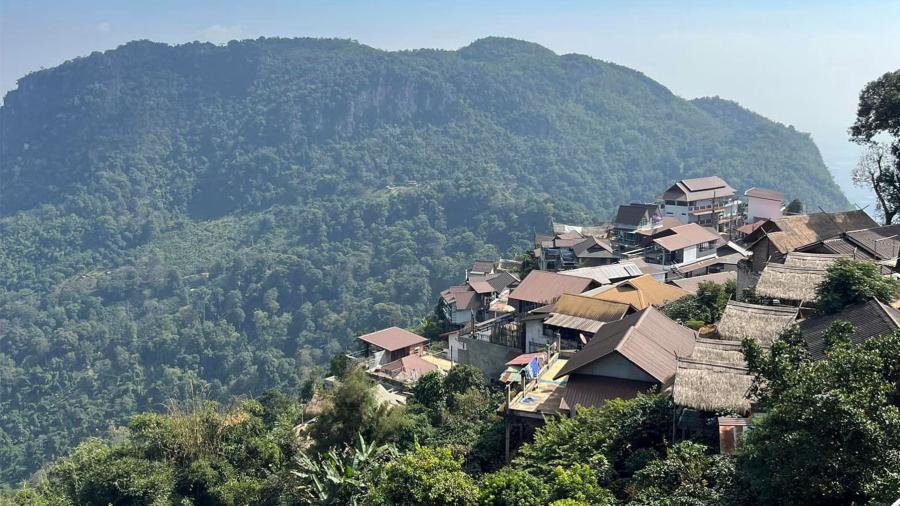
Riding into the lush, forested hills, and then over rutted mountain roads, the class visits several villages, including Pha Hi village, near Myanmar.
Between two mountains, nestled in the slope of a steep valley, they can see the area where the Tham Luang Nang Non cave system twists deep below the earth – where the Thailand boys’ soccer team was trapped and rescued in 2018.
During their village visits, the class learns from nongovernmental organizations about Thai culture, cultural differences, the difficulties women face and the opium war.
“It is not uncommon for an arranged marriage with girls as young as 13. Bride napping is also very common. Women are seen as bearers of children, not equals. It really put into perspective the different reality that women have in America,” Monroe explained.
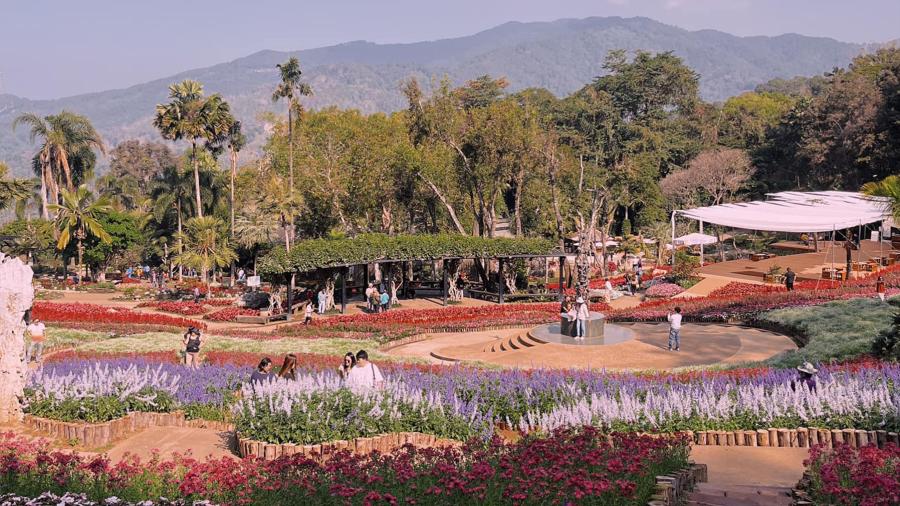
With mountains towering in the background, 100,000 flowers bloom and palm trees sway at the Doi Tung Garden. The class visits the garden during the annual flower festival.
“My mom loves flowers. I couldn’t stop thinking of how I wished she could be seeing the garden with me,” Monroe said. “I hope to visit with her someday and show her just how beautiful it is in person. Pictures never do anything justice.”
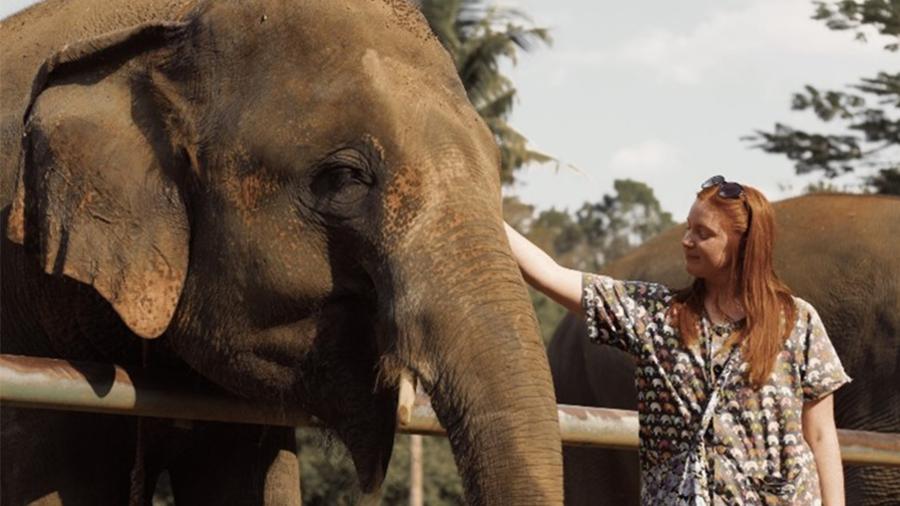
Students are greeted by the strong, elegant trunks of Asian elephants at the Kanta Elephant Sanctuary, and bathed the creatures in a gentle river, splashing each other with buckets of water.
“I never thought I would love a creature this much,” Monroe said. “Elephants are massive teddy bears. They just want food and loving. They are truly beautiful, gentle creatures with a calming energy.”
Education in Cozumel
Education students Evan Verboomen and Sara Christians and their classmates spend 40 hours over the two weeks, providing learning lessons in classrooms for children with or without disabilities and in the Montessori school.
They also have a walking tour of Cozumel, buy fresh ingredients at a market for a cooking class, ride a ferry to Playa del Carmen on the mainland, visit Chankanaab, a botanical garden and reef marine park, and stroll on the sands of Punta Del Sur beach.
During a visit to the Mayan ruins, they learn that Cozumel was originally settled approximately 2,000 years. Mayan women would, at least once in their lifetimes, make the treacherous journey from the mainland to the island in wooden canoes to worship Ix Chel, goddess of fertility, medicine, midwifery and weaving.
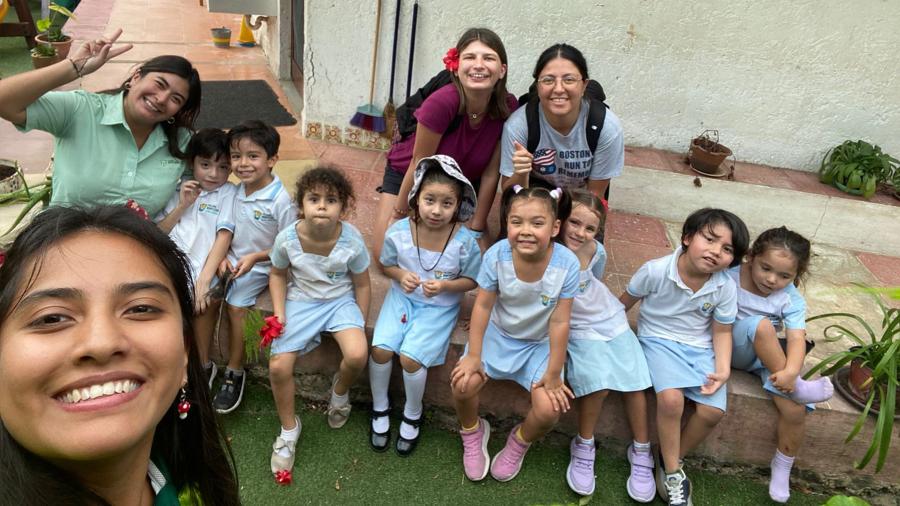
Knowing a little bit of Spanish, Christians, an early childhood education student from Minneapolis, wanted to study abroad to learn more.
“I wanted to take the step of independence in knowing more about myself in comfortable or uncomfortable situations,” she said. “I met new people who are kind and wonderful to be around. I also became more open about the school system and how it runs.”
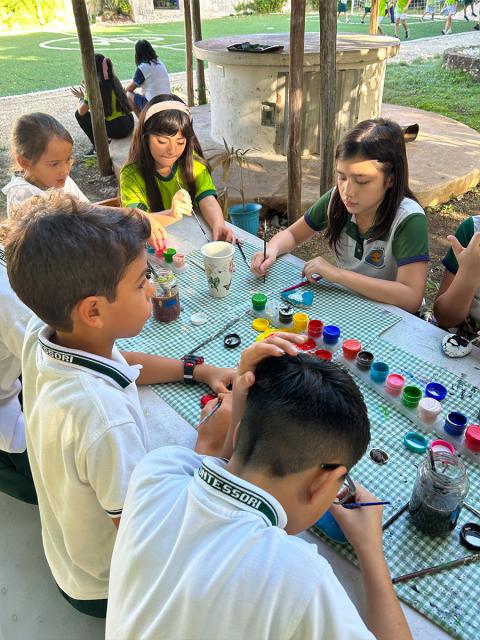
Christians worked with prekindergarten students for three days at the Montessori school.
“It was my favorite part of our trip. Seeing how these teachers taught Montessori, letting the children decide what they wanted to do for their ‘chore’ is something I will be incorporating in my classroom,” she said.
One of their lessons included the children’s book "The Magic Mission" by Pebe Sebert, founder of the nonprofit organization The Magic Mission, which is dedicated to stopping the overpopulation, abuse and homelessness of dogs and cats in Central America. The book is a teaching tool used to foster a positive attitude toward dogs and cats.
“We realized it could be mutually beneficial for the UW-Stout students to incorporate the book in their classroom lessons,” Hopkins-Best said. “Pebe generously arranged to have the book printed on the island, assuring that the children taught by our students each received their own book.”
As his first activity with the children, Verboomen, a technology education student from Kimberly, teaches a dozen fifth- and sixth-graders how to make simple dog leashes.
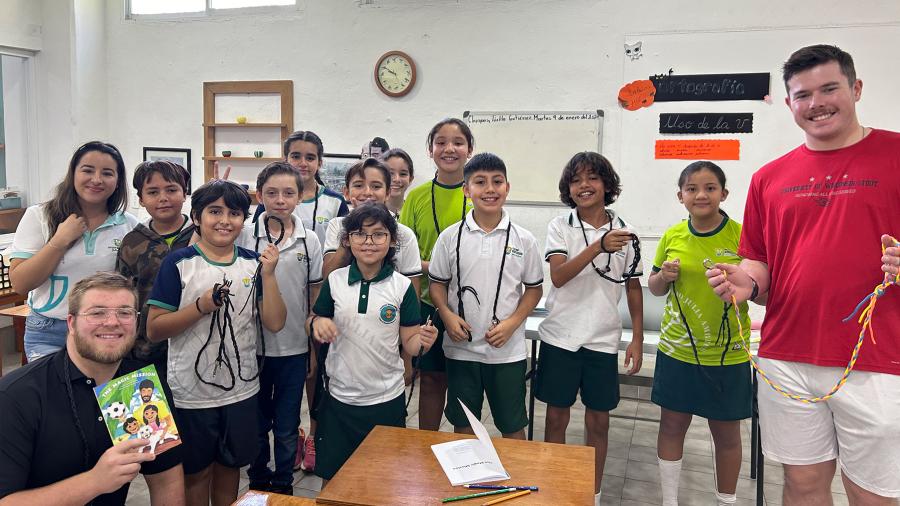
Verboomen leads the children in the activity, first tying three pieces of black paracord in a knot on a clasp to secure it. The children then braid the paracord, knot it at the end and feed it back through the leash to make a loop for a handle.
“It was a blast. The kids were so excited to make the dog leashes, and it was one of the best days we had there,” he said. “I hope they learned why dogs need to be on leashes and just have more knowledge about the Magic Mission organization and the spay and neuter campaign.”
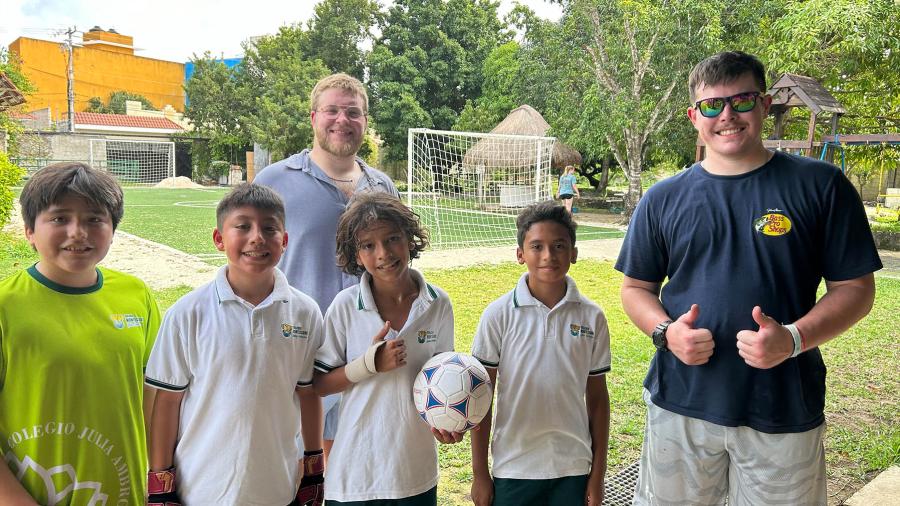
Verboomen chose to study abroad to have new multicultural education experiences in a different country.
“I gained the experience of teaching kids who don't have the same background or beliefs as me and trying to get them engaged in learning while I teach the lesson. I also broadened my knowledge of the world and different cultures,” he said.





